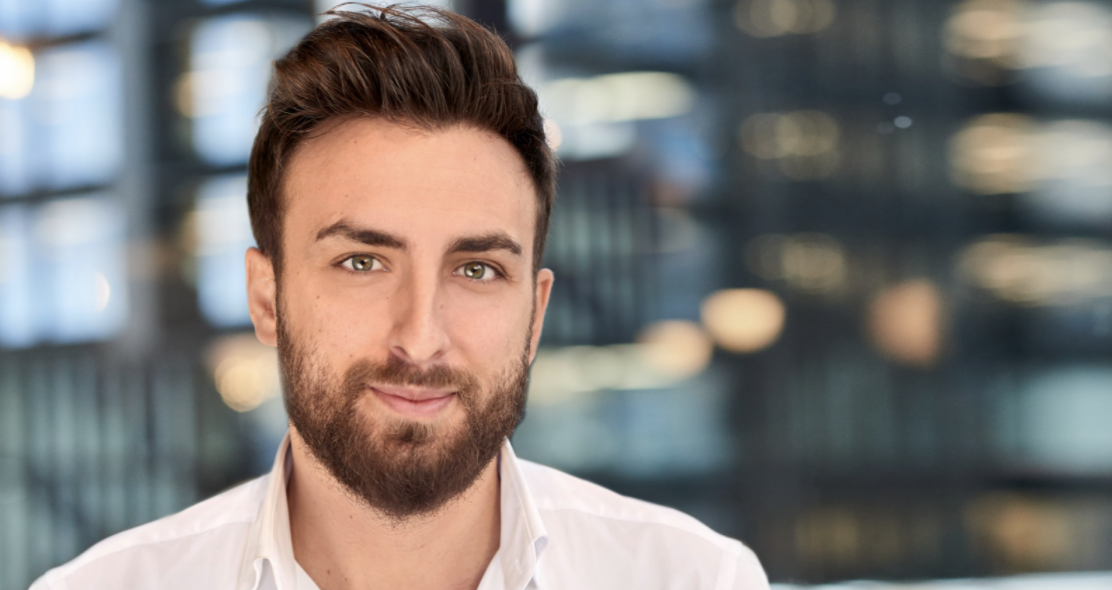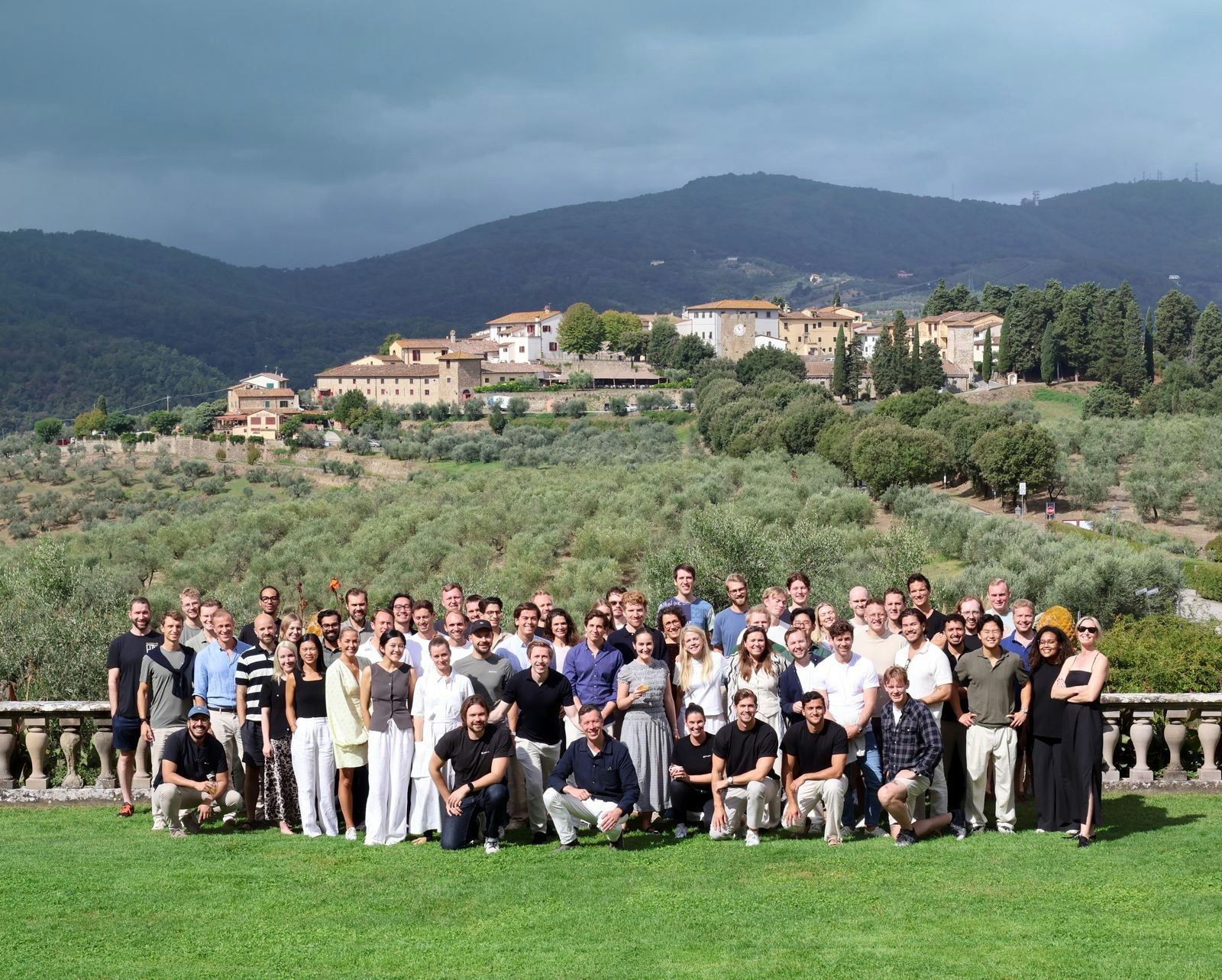When Victoria Repa, a Ukrainian entrepreneur, began her bootstrapped business she used to call herself a CEO — Chief Everything Officer. Money was scarce so she had to fill a lot of roles on her own.
Five years on, her company — a physical and mental health app called BetterMe — has grown to $80m annual revenue. That’s more than some of her competitors who have raised external funding, such as Freelectics or 8fit. It has 110m users around the world — more than running app Strava or mental health app Headspace. And it’s turned a profit for the last five years.
By now, many CEOs in Repa’s position would be sitting back and enjoying their success. But the war in Ukraine has pulled the rug from under her feet.
“Now I’m a Chief Energy Officer,” she tells Sifted. “I totally believe I can, as a leader, take off the fear and provide the energy [to the team].”
Like many other Ukrainian startups, BetterMe had to adjust its operations to the drastic conditions caused by the war. As the majority of its clients are in the US and western Europe, the business didn’t really suffer. But the company’s 200-strong team was forced to temporarily flee Kyiv, or even leave the country for good.
Repa moved to Warsaw. She says staying in her homeland might have been patriotic, but wouldn’t have been very smart in terms of a long-term business strategy.
“It's strange I'm not with the team,” she says. “But I wouldn't be able to work if the electricity is off.”
On the way to the top
Repa grew up in Ukraine’s eastern Donbas region, where she didn’t have too much exposure to the world of tech and innovation.
“In my childhood, I never heard of IT entrepreneurs,” she says.
She got a scholarship to study business in Kyiv and, after graduation, ended up working for a big consumer goods corporation, Procter & Gamble. But she soon decided to move to a sector she found more exciting: tech.
She joined an IT company, Genesis, and began working on her health app.
The idea emerged “from personal pain”, Repa says. “In my family everyone was overweight. My mother told me it’s genetic and I’ll never lose weight.”
BetterMe now has two apps which provide exercise plans, diet schedules, coaching sessions and psychological support. The company also sells sportswear.
In my childhood, I never heard of IT entrepreneurs
Startups like BetterMe mushroomed during the pandemic but in 2016, when Repa started, they were still niche. At the same time, in Ukraine there wasn’t enough VC money to back the idea.
Repa raised $5m from Genesis to start the business and has bootstrapped it ever since. “[In Ukraine] we don't have enough market capital,” she says. “If you are, for example, an undergraduate from Stanford, it's easier to raise money, there are more options.”
“I know that I’ve just said ‘oh, I bootstrapped’ but it’s a lot of nights of crying in my pillow. I know how hard it is,” she adds. “You have a lot of restrictions if you don't have enough money.” With limited resources, it’s hard to build a big brand, run advertising campaigns or hire specialists.
For now, she has enough cash to continue and isn’t looking for external funding — but she doesn’t rule out that option in the future, to develop new products. “We would like to become one of the biggest healthtech companies in the world, that can provide easy preventive medicine,” she says.
Telling the Ukrainian story
Repa is also on another mission: telling the world the story of Ukraine, its resistance and its startups.
“BetterMe is responsible not only for our business, we’re responsible for the country… We should generate cash, donate to the army,” she says, adding that the company has already sent 1.5m Ukrainian hryvnia (about €41k) to the country’s military.
BetterMe apps are also free for all Ukrainian citizens — and the company has created a limited edition of its activewear in blue and yellow. Half of the profit it generates from them goes to support Ukrainian children.
If [investors] see a lot of great businesses, that I'm an educated entrepreneur, that I'm not different from American founders, I can run a global business, they will have a different mindset about Ukraine
Repa wants to use her international exposure to encourage people to donate to help Ukraine and also to evangelise Ukrainian entrepreneurship in the western world.
“I totally believe that the war will end this year or maybe next. And then [we need to focus on] the economic recovery of the country,” she says.
Many people see Ukraine only as a post-Soviet, post-oligarch country, she says. “But we can look now at a new young generation of entrepreneurs that can bootstrap, that can build a global business.”
She adds that after the war ends, there will be an opportunity to invest in Ukraine not as humanitarian help, but as a chance to make money.
So now she’s travelling, speaking at conferences, organising charity events and networking to show the world the best side of Ukrainian entrepreneurship.
“Because someday in the US some people may think: ‘Oh, Ukrainian startups are great to invest in’,” she says. “If they see a lot of great businesses, [if they see that] I'm an educated entrepreneur, that I'm not different from American founders, I can run a global business, they will have a different mindset about Ukraine, in terms of the image of the brand of Ukraine in the world.”



